onomato Artist Association Düsseldorf – project days / exhibition
Transparency, Exchange and Connection
The space of the onomato Artists Association, in the Birkenstraße – an artists off-space typical for the state capital Düsseldorf – could hardly have been better suited for the first person-to-person encounter between the Israeli students of the Bezalel Academy Jerusalem and the students of HSD Düsseldorf and UE Berlin in October 2021.
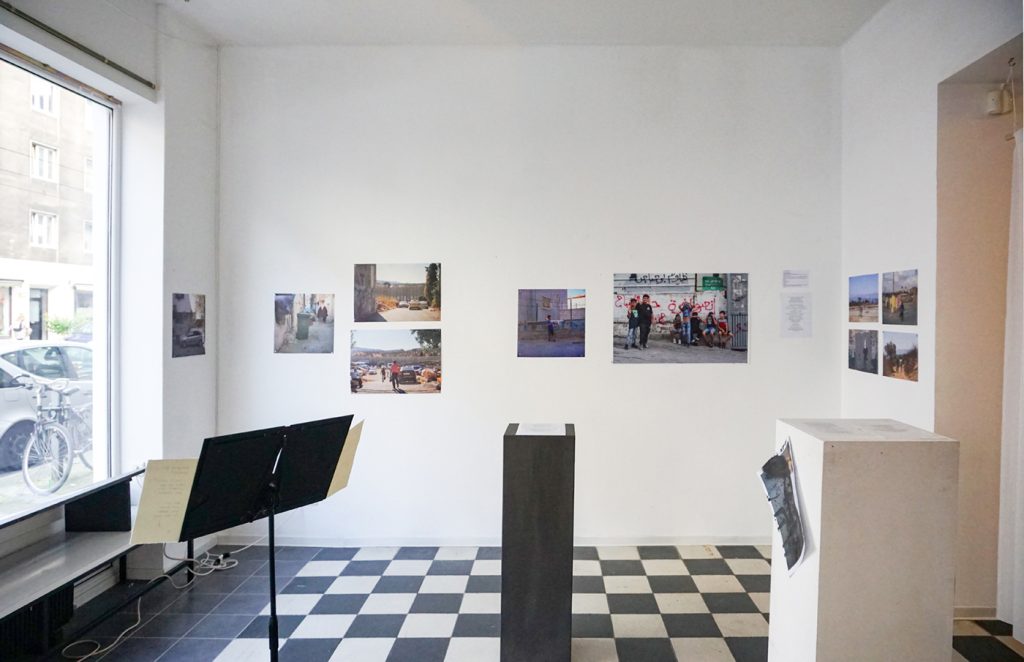
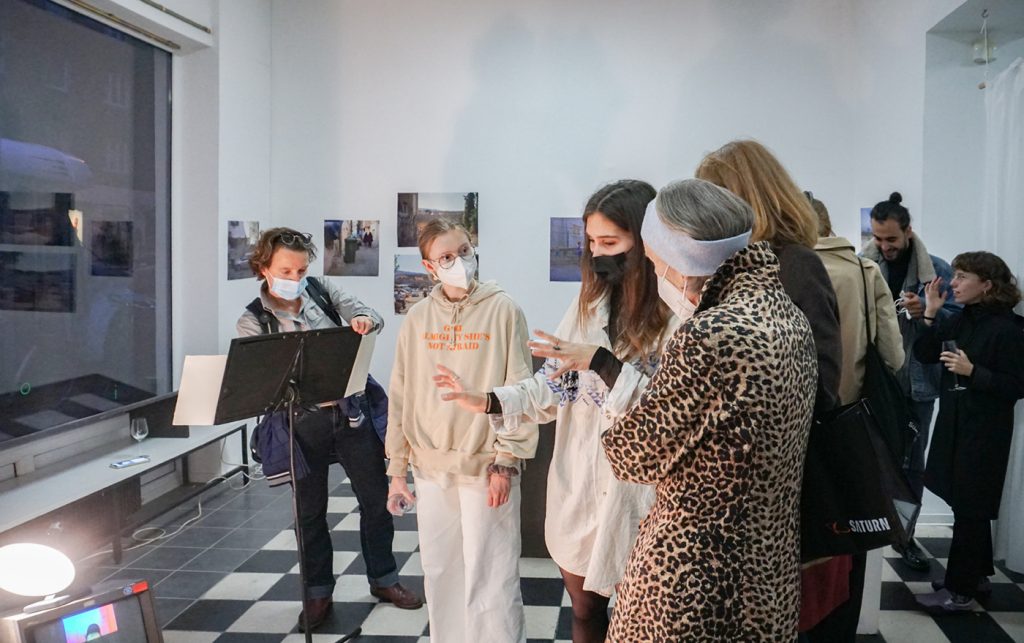
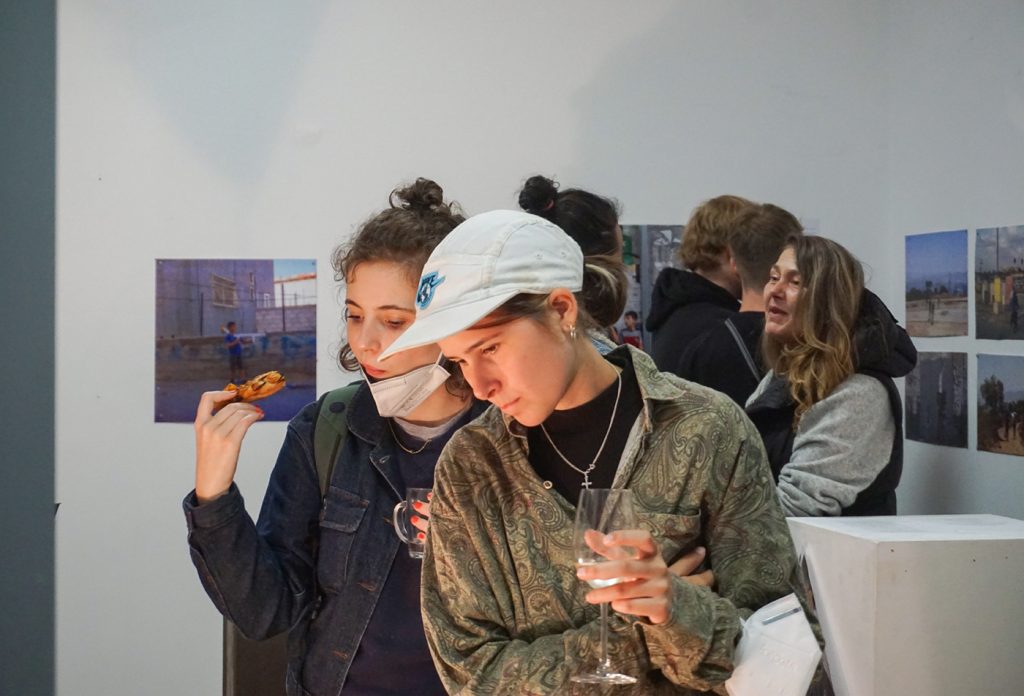
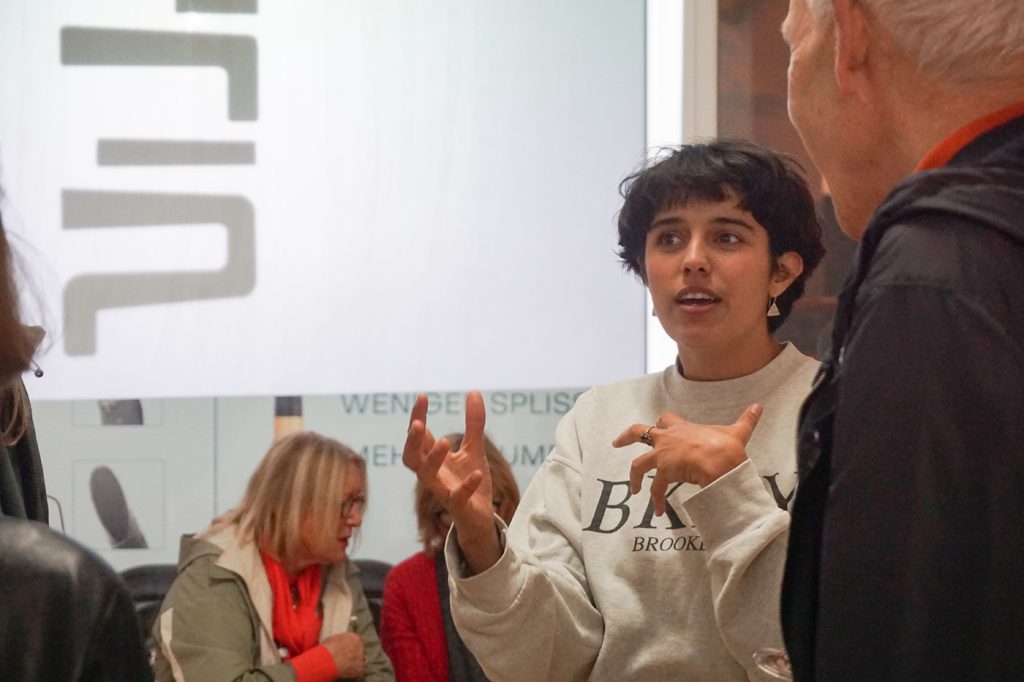
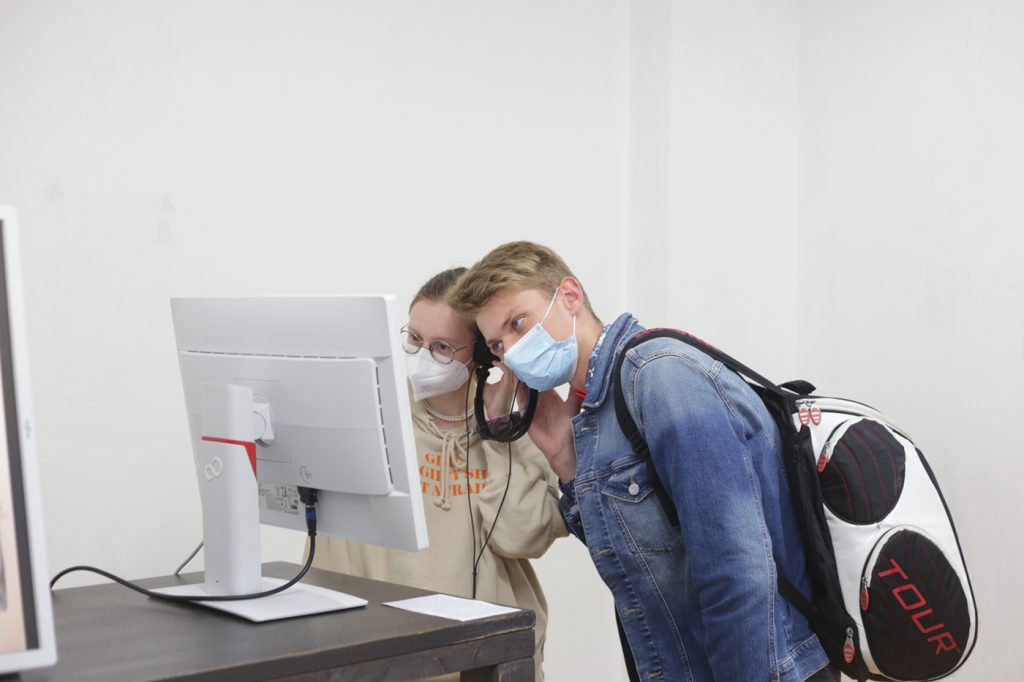
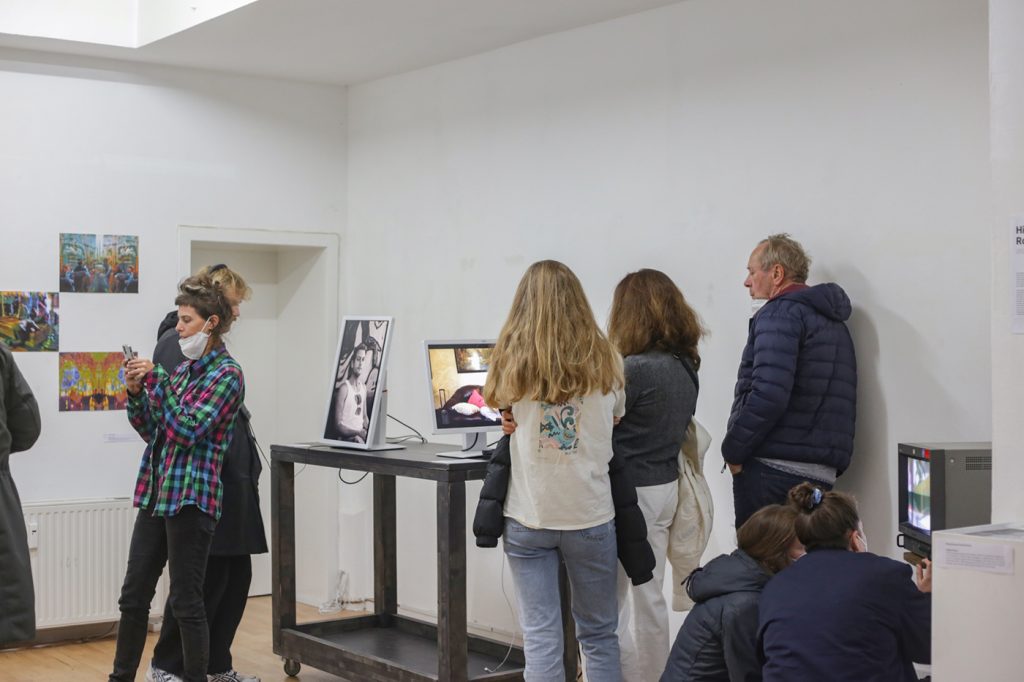
After a year of research, countless video calls, and work on the theme of the celebratory year 1700 years of Jewish life in Germany, the students and their lecturers Hadas Satt, Professor Anja Vormann and Professor Katharina Mayer came together with the ideas/works the students had come up with so far.
During the three days of preparation for the group exhibition, Dance with the Desert, the English-language way of communicating in getting-to-know-each-other conversations quickly merged with the language of art, so that the young illustrators, photographers and installation artists came closer to each other personally through their individual artistic, ethical, and philosophical interests and questions. There was much quiet, concentrated work, complete with night shifts as the creative energy was flowing so well. Here, excited laughter and hustle and bustle, there, long periods of deep thinking in front of each other’s works. This went on until the opening. The visitors at the vernissage left the onomato space no less animated and full of questions.
A kind of transformative graffiti wall in the onomato window transported passers-by and exhibition guests to the streets of Tel-Aviv, where the walls act as a personal, social or political mouthpiece. Personal and emotional texts as well as photos about the current complex situation of Palestinian society, nocturnal photo series from the ultra-Orthodox Jewish community in Jerusalem, or far more intimate personal stories of friendship and the search for self in documentary short films gave tremendous new insight not only into the life of the Jewish community, but also into the subjective nature of all people.
In an interactive multi-media installation based on the song Youkali by the Jewish composer Kurt Weill, the question was raised about the faith that everyone has independent of God and which possibly expresses itself in deep longing and inner trust as a source of strength. A light-installation tape-art room tried to give answers to the recurring question of personal identity by using telephone-recorded interviews intended to animate the viewer to search for their own identity.
The lecture held by Hadas Satt on connected photographs of her and her father or photographs of what seem to be dancing bats made it clear that personal biography, shifts in perspective, and diversity of views beyond limiting borders are vital in life and to society as a whole. Each and every work of the students told that the numerous questions and thoughts that arise through research on Jewish life are, in fact, valid for all of us, regardless of our religion and origin, and of the fact that our pasts and life experience remain integral parts of us at the same time.